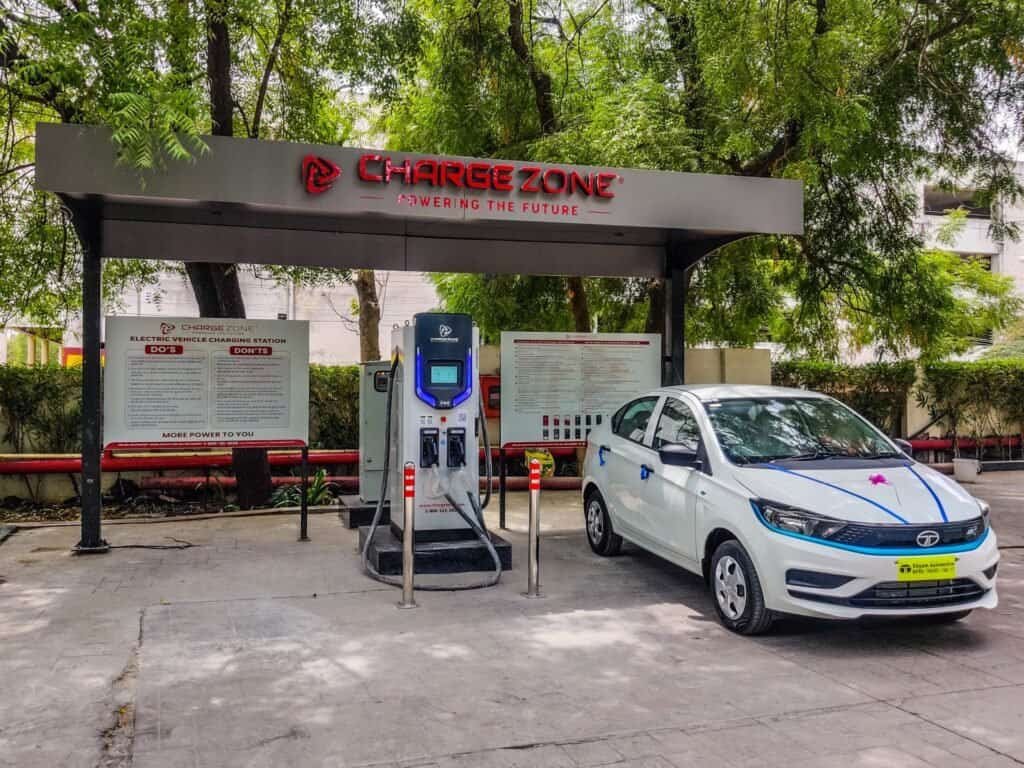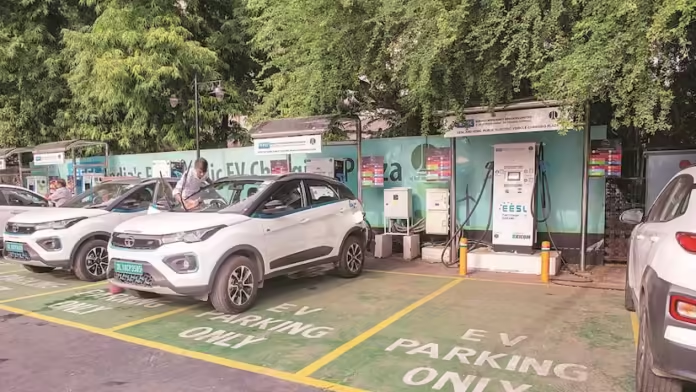A report released on October 30 stated that the Indian government is still working to increase EV production in the nation and to localize supply chains further, both of which are essential to achieving the country’s 2030 EV penetration goal of 30%.
Over the next ten years, the Tata and JSW groups alone are expected to invest over $30 billion in the production of EVs and EV materials, with over $10 billion of that investment occurring in South and Southeast Asia (SSEA), according to a report by S&P Global Ratings. As the world’s most populous country, India’s vast market potential is attracting substantial EV-related investment. EV adoption in India will progress with model launches that bring prices more in line with ICE models, and with improving charging infrastructure.
“We also believe hybrids and vehicles powered by compressed natural gas will command meaningful market share alongside EVs in the light-vehicle and passenger commercial vehicle segments,” the report mentioned.

The government is pushing for Tata and JSW companies to invest more than $30 billion in the EV sector: Report
Hyundai Motor Co. (HMC) and Kia, two Korean companies that together make up the nation’s second-largest automaker, are becoming more and more dependent on India. In 2023, the market made up almost 12% of the group’s total worldwide sales volume. Hyundai intends to keep making investments in India, particularly in domestic EV manufacturing. In January 2025, it will debut its first domestically produced fully electric vehicle. According to the report, the company recently finished its IPO in India, and a portion of the money raised would be utilized to expand and enhance its product line in that country. “In our opinion, Tata Motors has enough financial leeway in its credit metrics to carry out its EV investments.
The company revealed plans to invest over $1 billion in a new EV facility in Tamil Nadu, a state in south India, in September 2024, according to the newspaper. Its parent company, Tata Sons Pte. Ltd., has also disclosed plans to invest in a 20 gigawatt-hour lithium-ion battery factory in Gujarat, a state in the northwest. The plant will help the EV supply chain in that area grow further. According to the research, rated automakers are expected to invest over $20 billion over the next several years in developing EV production in South and Southeast Asia.


